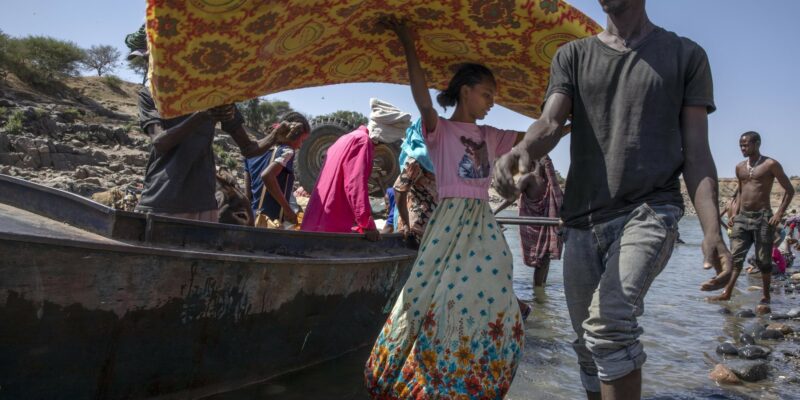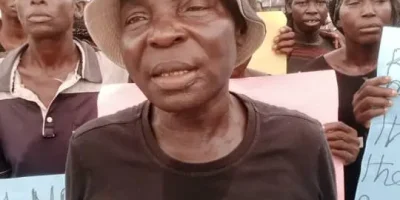Diplomatic efforts to try to avert an attack on Ethiopia’s capital gathered pace on Thursday after Tigrayan forces from the north of the country made advances towards the city this week.
The U.S. special envoy for the Horn of Africa, Jeffrey Feltman, was expected to arrive in Addis Ababa later in the day to press for a halt to military operations and a start to ceasefire talks.
Ugandan President Yoweri Museveni called an East African bloc leaders’ meeting on Nov. 16 to discuss the conflict, which pits the central government against the Tigray People’s Liberation Front (TPLF) and its allies.
Separately, the bloc, the Intergovernmental Authority on Development, appealed for an immediate ceasefire. It urged the parties to show restraint, de-escalate tensions and resolve their differences through dialogue.
Kenyan President Uhuru Kenyatta issued a statement on Wednesday saying “The fighting must stop!”
He called on the rival parties “to put down their arms and to cease the fighting, to talk, and to find a path to sustainable peace”.
U.N. Secretary-General Antonio Guterres said he had spoken to Ethiopian Prime Minister Abiy Ahmed on Wednesday “to offer my good offices to create the conditions for a dialogue so the fighting stops”.
In another sign of alarm, the U.S. Embassy in Addis Ababa authorised the voluntary departure of some staff and family members because of the intensifying hostilities.
Washington said on Wednesday it was “gravely concerned” about the situation and called for a halt to military operations in favour of ceasefire talks.
“The (State) Department authorized the voluntary departure of non-emergency U.S. government employees and family members of emergency and non-emergency employees from Ethiopia due to armed conflict, civil unrest, and possible supply shortages,” the embassy said in a statement.
Police had arrested “many people” in Addis Ababa since the government declared a state of emergency on Tuesday, police spokesperson Fasika Fanta said on Thursday.
Residents told Reuters on Wednesday that many Tigrayans had been arrested, but Fasika said arrests were not based on ethnicity.
“We are only arresting those who are directly or indirectly supporting the illegal terrorist group,” he said. “This includes moral, financial and propaganda support.”
He also said many people were registering weapons at police stations around the city in line with a government directive issued on Tuesday for people to prepare to defend their neighbourhoods.
“Some are even coming with bombs and heavy weapons. We are registering those too,” he said.
The streets and shops in Addis Ababa, a city of around five million people, were busy as usual on Thursday morning, though some residents said there was a feeling of uneasy calm.
“There are rumors about the approach of the rebels. People debate about the conflict, most of the people accuse the government for what happened,” said one man, who spoke on condition of anonymity.
Abiy’s government declared the state of emergency on Tuesday as the Tigrayan forces threatened to push forward to Addis Ababa. read more
The Tigrayan troops are in the town of Kemise in Amhara state, 325 km (200 miles) from the capital, TPLF spokesman Getachew Reda, said on Wednesday.
Government spokesperson Legesse Tulu did not respond to requests for comment.
Abiy’s spokesperson, Billene Seyoum, accused the international media of being “overly alarmist” in its coverage of Ethiopia.
“Perpetuating terrorist propaganda as truth from offices far off and detached from the ground is highly unethical, she said in a tweet.
On Wednesday, Britain urged its citizens to consider leaving Ethiopia while commercial options were available.
The conflict started a year ago when forces loyal to the TPLF, including some soldiers, seized military bases in Tigray. In response, Abiy sent more troops to the northern region.
The TPLF had dominated national politics for nearly three decades but lost much influence when Abiy took office in 2018 following years of anti-government protests.
The TPLF then accused him of centralising power at the expense of Ethiopia’s regional states – an accusation Abiy denies.
The Tigrayan forces and their Oromo allies have made significant advances in the past week. Spokesman Getachew on Wednesday pledged to minimise casualties in their drive to take Addis Ababa.
“We don’t intend to shoot at civilians and we don’t want bloodshed. If possible we would like the process to be peaceful,” he said.
A regional analyst, who spoke on condition of anonymity, said the TPLF was likely to hold off on any advance on Addis Ababa until they secured the highway running from neighbouring Djibouti to the capital.
That requires seizing the town of Mille. Getachew said on Tuesday that Tigrayan forces were closing in on Mille.
Ethiopian military spokesman Colonel Getnet Adane did not immediately respond to a request for comment.








Comments